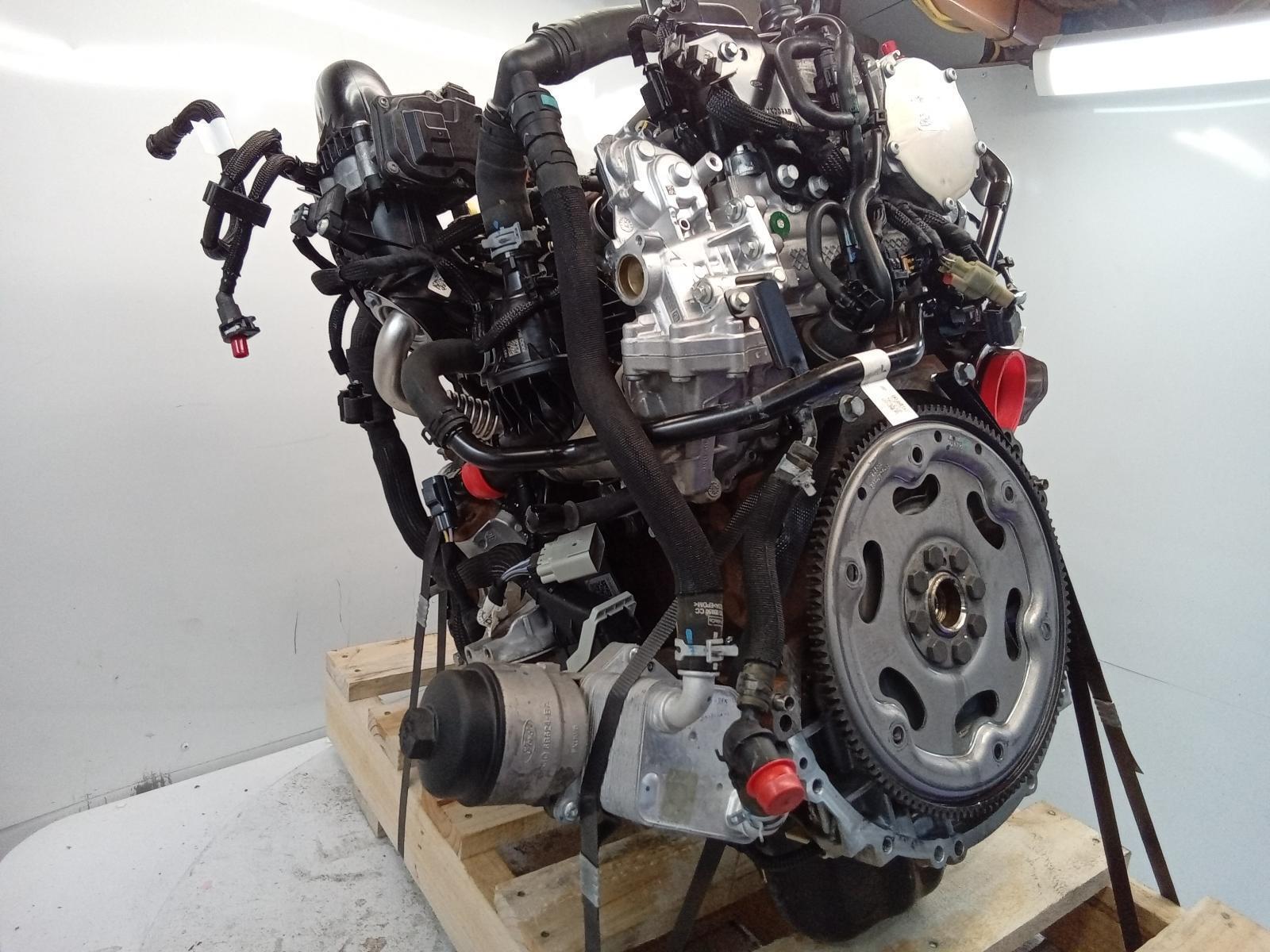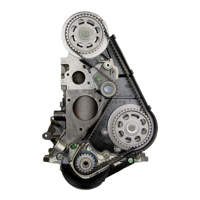How the 2.2 Ford Ranger Engine Stands Out for Durability and Power in Tough Conditions
How the 2.2 Ford Ranger Engine Stands Out for Durability and Power in Tough Conditions
Blog Article
How to Select the Right Vehicle Engine for Optimum Performance and Efficiency
Picking the proper automobile engine to achieve an optimum balance of efficiency and effectiveness requires a nuanced understanding of numerous engine types and their details features (2.2 ford ranger engine). Factors such as engine variation, the number of cylinders, and fuel kind play a pivotal duty in identifying both power result and fuel economic situation.
Recognizing Engine Kind
When choosing a car, among the most crucial parts to think about is the engine kind, which acts as the heart of the vehicle. The engine kind dramatically affects the car's total efficiency, long life, and suitability for your driving demands. There are largely three engine kinds to think about: internal combustion engines (ICE), hybrid engines, and electric engines.
Inner combustion engines remain one of the most common, operating on gasoline or diesel. They are recognized for their power and velocity, making them ideal for performance-oriented vehicles. Nonetheless, they may drop brief in fuel efficiency and ecological impact.
Crossbreed engines integrate an internal burning engine with an electrical motor, offering an equilibrium between performance and gas economic climate. They are increasingly preferred for drivers seeking reduced exhausts while still providing appropriate power.
Electric engines, powered completely by batteries, are obtaining traction due to their environmental benefits and reduced running costs. They provide immediate torque and a silent driving experience, making them ideal for city commuting.

Efficiency vs. Efficiency
Selecting the ideal engine kind involves considering the trade-offs in between performance and performance. Performance generally describes exactly how well an engine can provide power and velocity, which is typically related to larger displacement engines or those with turbocharging abilities. These engines generally supply exhilarating driving experiences and quick response times, making them prominent amongst enthusiasts.
On the various other hand, efficiency concentrates on gas economic climate and lower exhausts. Smaller sized engines, especially those geared up with sophisticated innovations such as direct fuel shot and variable shutoff timing, have a tendency to provide much better miles per gallon and reduced carbon footprints. While these engines may compromise some power contrasted to their bigger counterparts, they usually stand out in day-to-day driving situations where high performance is not constantly essential.
Ultimately, the option in between efficiency and effectiveness depend upon individual concerns. A motorist who values spirited driving might focus on a high-performance engine, while a person seeking cost-efficient commuting might favor an efficient choice. Recognizing these trade-offs is vital for making a notified choice that straightens with your driving demands and lifestyle, guaranteeing that the chosen engine kind complements your assumptions for both efficiency and performance.
Trick Requirements to Think About
Recognizing crucial specs is necessary for making a notified choice about the best cars and truck engine. When choosing an engine, numerous vital elements call for factor to consider to ensure optimal efficiency and effectiveness.
It shows the overall volume of the engine's cylinders and generally associates with power outcome; bigger variations commonly generate more power. Engines with even more cylinders can provide smoother procedure and greater power, while smaller configurations can improve gas effectiveness.
Furthermore, the engine's configuration, whether inline, V-type, or rotating, influences the overall design and performance qualities of link the lorry - 2.2 ford ranger engine. Turbocharging and supercharging modern technologies should also be reviewed; these boost an engine's power output without considerably boosting its size, therefore enhancing performance
Fuel kind is one more vital factor to consider, as it impacts both performance and prices. The engine's compression proportion influences performance and power delivery; a higher ratio normally leads to much better efficiency, however might need superior gas. By meticulously analyzing these specifications, you can pick an engine that straightens with your efficiency and effectiveness objectives.
Reviewing Driving Needs
Assessing driving requirements is an essential action in figuring out the ideal auto engine for your way of living and usage patterns. If your driving mainly consists of brief commutes in metropolitan environments, a smaller engine with good fuel efficiency may be enough.
Think about the terrain you normally browse. Hilly or rugged landscapes may demand an engine with greater torque for far better performance. In addition, assess passenger and cargo needs; larger families or those that carry goods might gain from automobiles with boosted power and capacity.
It's additionally important to evaluate your fuel choices. Diesel motor commonly provide remarkable torque and gas economic situation for heavier automobiles, while gas engines might give a smoother and quieter ride. Last but not least, variable in environmental considerations, as hybrid or electric engines can offer an extra lasting option without sacrificing performance. By completely understanding your driving requirements, you can make an enlightened decision that lines up with both efficiency expectations and efficiency objectives.
Future Fads in Engine Innovation
As the vehicle sector proceeds to progress, innovations in engine innovation are paving the means for much more sustainable and effective driving experiences. One substantial pattern is the shift towards electrification, with crossbreed and completely electrical powertrains getting importance. Automakers are spending heavily in battery modern technology to boost power density and lower charging times, ultimately improving the functionality of electrical vehicles (EVs)
Another emerging pattern is the advancement of hydrogen gas cell engines. 2.2 ford ranger engine. These systems use the potential for zero-emission driving this website while providing refueling times equivalent to traditional gas engines. Furthermore, innovations in combustion innovation, such as variable compression ratios and improved turbocharging, are optimizing conventional inner combustion engines for much better performance and performance
Digital assimilation is also an important aspect of future engine technology. The application of expert system and artificial intelligence permits real-time data analysis, allowing smarter engine management systems that adapt to driving conditions and enhance fuel efficiency.

Final Thought
Finally, choosing the appropriate automobile engine demands a thorough analysis of various factors, including engine type, performance requirements, and effectiveness goals. By recognizing the differences in between different engine kinds and considering key specs, individuals can align their options with details get redirected here driving demands. As advancements in engine innovation remain to arise, remaining educated about future trends will certainly additionally enhance decision-making, ultimately resulting in a lorry that stabilizes performance and fuel effectiveness successfully.
Picking the proper auto engine to attain an ideal equilibrium of performance and effectiveness requires a nuanced understanding of different engine types and their specific characteristics. There are largely 3 engine types to consider: internal burning engines (ICE), hybrid engines, and electrical engines.
Efficiency generally refers to exactly how well an engine can deliver power and acceleration, which is commonly connected with bigger displacement engines or those with turbocharging abilities. Diesel engines often provide exceptional torque and fuel economy for heavier vehicles, while fuel engines might provide a smoother and quieter experience.In verdict, picking the proper vehicle engine requires a comprehensive examination of numerous variables, consisting of engine type, performance demands, and effectiveness objectives.
Report this page